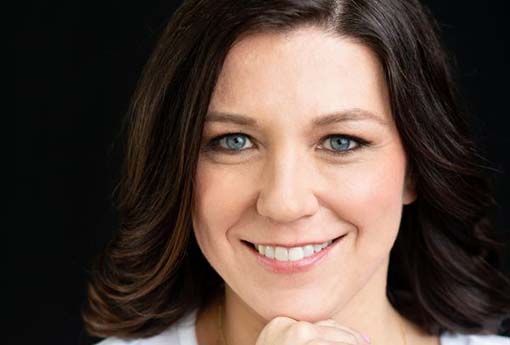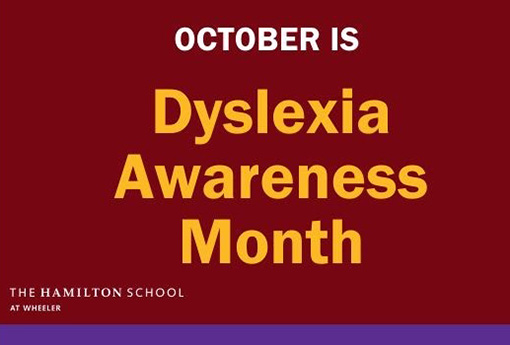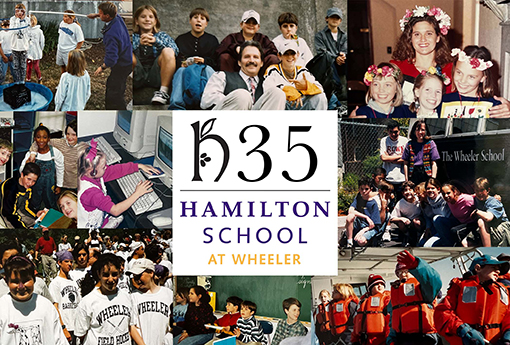
An Introduction to the Hamilton School at Wheeler from Head Bill McCarthy
January 22, 2024
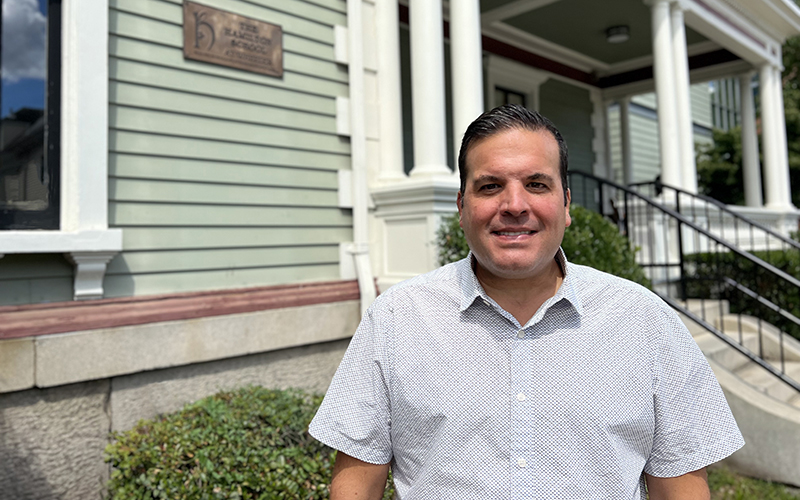
You may contact Bill McCarthy via email at billmccarthy@wheelerschool.org or reach him at (401) 421-8100 ex. 2167.
For more than three decades, The Hamilton School at Wheeler has provided students who have great overall cognitive ability, but who struggle with reading, organization, and study skills due to dyslexia, attention-deficit disorder, executive function deficits, or other learning differences, with the individualized instruction that leads to success, all in the context of a larger independent school. We talked with Head of the Hamilton School at Wheeler Bill McCarthy, who joined our community this summer, about what brought him to Hamilton and the school’s distinctive approach to helping students with language-based learning differences meet the highest educational expectations.
Q: How do you describe the Hamilton School at Wheeler?
A: The Hamilton School at Wheeler educates, supports, and empowers students with identified learning differences. Our students are bright, curious, and creative, and they need specific instructional methods and support to allow them to reach their true potential. At Hamilton, we provide consistent opportunities for our students to grow both academically and socially. We talk a great deal about our identities as learners and celebrate neurodiversity to help students advocate for themselves and take pride in their learning. At Hamilton, we have two primary goals : 1) to create dynamic and engaging learning opportunities to reach all students and 2) to meet students where they are and motivate them to work toward their potential.
Q: Can you tell me more about the benefits of Hamilton being part of The Wheeler School, and vice versa? What are some of the ways that Hamilton is connected and contributing to the larger life of Wheeler?
A: The Wheeler School’s mission, “to learn our powers and be answerable for their use,” speaks directly to what happens every day at Hamilton. As a “school within a school model,” we are able to offer students learning experiences and support through small group and individualized instruction in core academic skills areas while also allowing our students to shine in other parts of our all-school program that allow them to demonstrate their wonderful talents and strengths. This model allows us to appreciate the whole child, and true to our mission, our students learn to fully embrace and take pride in their powers and use these to help enhance our school community and beyond. As one school, the influence of Hamilton on the general Wheeler community has been profound, and the relationship allows us to embrace and celebrate neurodiversity and the incredible talents of every member of our community in a deep and intentional manner.
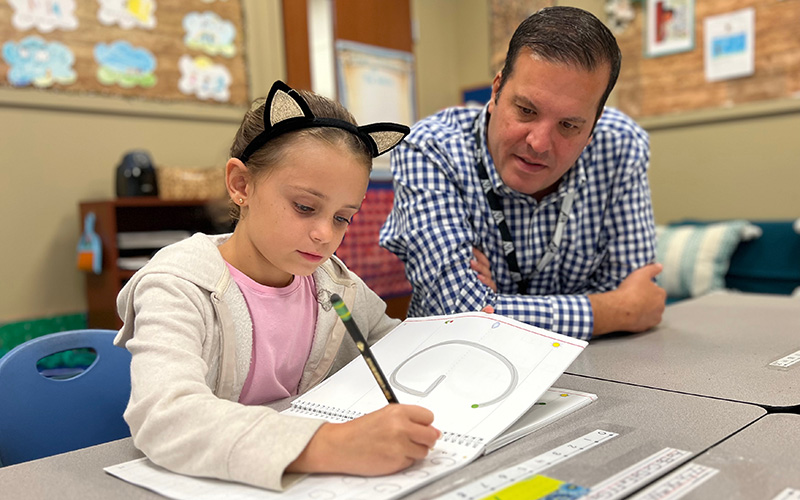
Q: The Polaris program is a relatively recent addition to The Hamilton School and Wheeler. What makes its academic program and approach unique for 9th-grade students and how is it integrated into the Upper School experience?
A: A natural extension to the types of instruction and support offered at the Hamilton School, the Polaris program allows for one small cohort of Upper School students with identified learning differences at each grade level to receive specialized instruction in their English and history classes. These courses cover the same content at each grade level as the other sections of these subject areas; however, the curriculum is scaffolded so that students can better understand and retain what is being taught and experienced. Our dedicated Polaris faculty members teach all Polaris classes, serve as advisors to each section, and meet individually with each student in the program every cycle. The Polaris program is presently in the third school year of its current model and has been highly successful for our students and impactful on our Upper School program.
Q: What is your approach to building relationships with parents as partners in education, and how do those relationships contribute to The Hamilton School’s mission?
A: Partnering closely with and supporting families are essential components of our educational model. Many of our students and families have had challenging experiences at previous schools, and we spend a great deal of time establishing trusting and caring relationships with families and encouraging families to be vulnerable and feel supported. Our mission statement at Hamilton includes the following: “Educating, Supporting, and Empowering Students with Learning Differences.” To make this possible, we consistently work to create and sustain healthy and productive partnerships with families. Each month, we host a Learning Differences Coffee for all Wheeler families, and this serves as a forum for families to share their experiences and offer support and guidance to each other.
Q: You became Head of the Hamilton School this summer. Why did you want to join the school?
A: When I was considering this leadership opportunity at Hamilton, I was deeply impressed by the dedication, thoughtfulness, and great care demonstrated by the faculty and staff. The Hamilton School teachers are experts in understanding students with learning differences and are always striving to create learning engagements to allow students to achieve success. Through their incredible efforts, our students and families feel supported and encouraged. During my interview process, I was deeply impressed by the joy and comfort that the Hamilton School students showed in approaching their academic work, discussing their learning styles, and connecting with each other as peers and classmates. I quickly realized that this is a school that values nourishing both the hearts and minds of children, which fully resonated with me as an educator and leader. Since officially beginning at the school, my deep appreciation for the great work taking place at Hamilton has only grown and exceeded my initial impressions.
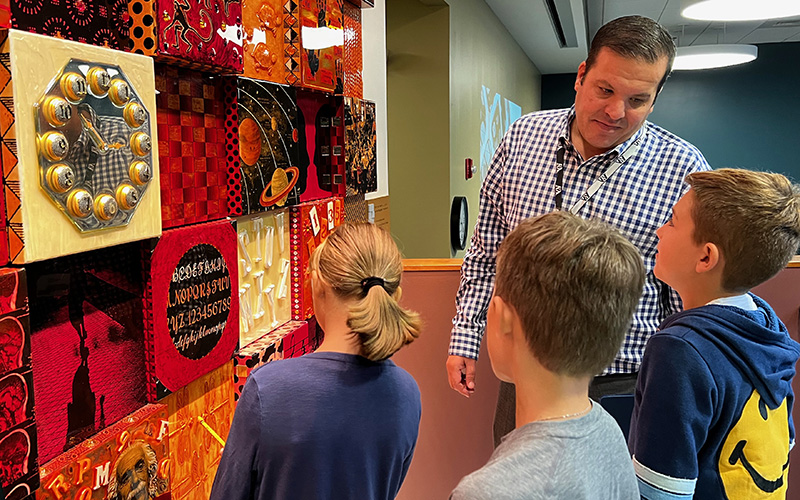
Q: Could you share some background of your 20 years of experience in education and how you have been settling into Wheeler in your first year? What do your duties consist of?
A: I have worn a number of different professional hats throughout my career, and I feel all have prepared me well for my role at Wheeler and Hamilton. I began my career in NYC over two decades ago as a speech-language pathologist and learning specialist and practiced for many years in that capacity. I have worked with individuals of all ages in different educational and clinical settings, but I have spent the majority of my time working with school-age children with learning differences. About 10 years ago, I returned to the classroom for a second master’s degree in clinical social work, and I apply the professional skills and techniques I learned in this graduate training every day in my work with students, faculty, and families. For the last decade, I have been an educational leader as an instructional coach, division head, and now, Head of the Hamilton School at Wheeler.
This school year seems to be moving at lightning speed, and since this is my first at Wheeler, my learning curve continues to be a bit steep. That said, I see every learning opportunity as a new adventure, and I’m enjoying becoming familiar with our wonderful school. I hope for this feeling to continue for as long as possible. I remind myself often that my number one job at Hamilton and Wheeler is to do my best to create a welcoming and comfortable learning environment for children and adults that invites and inspires all to be their best selves.
